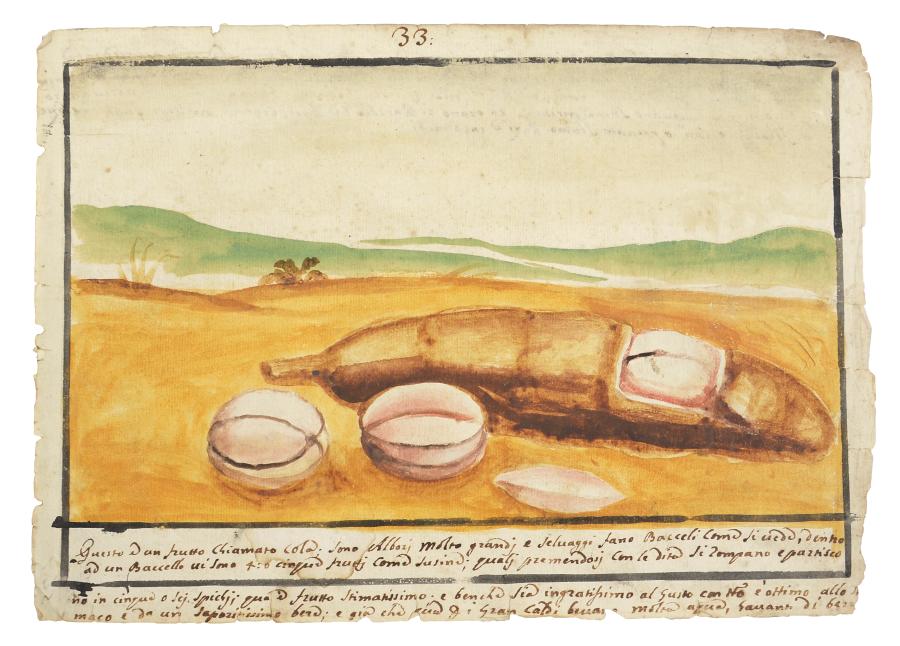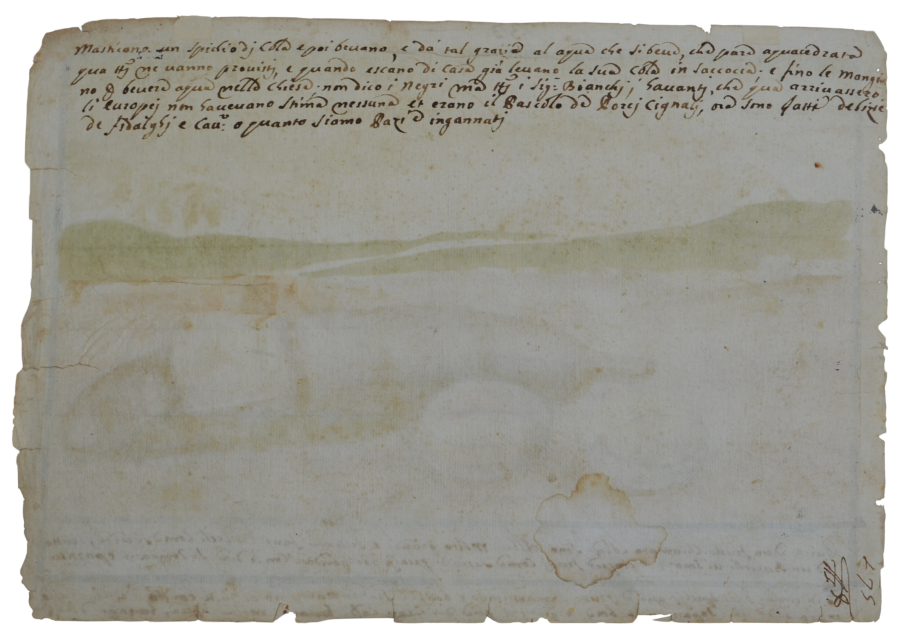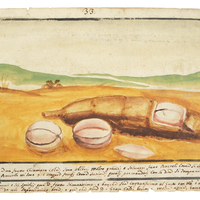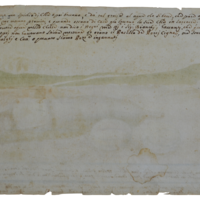PW033: Fruit called cola
Questo e un frutto chiamato cola;1 Sono Alberi molto grandi e selvaggi fano Bacceli come si vede, dentro ad un Baccello vi sono 4: o cinque frutti come susine; quali prememdosi con le dita si rompano e partiscono in cinque o sei spichi; qua è frutto stimatissimo; e benche sia ingratissimo al gusto con t[u]tto è ottimo allo s[to]maco e da un saporissimo bere; e gia che qua p[er] i gran caldi bevano molta aqua, havanti di bere [verso] masticano un spichio di cola e poi bevano, e dà tal grazia al aqua che si beve, che pare aquacedrata qua t[u]tti ne vanno provisti, e quando escano di casa già levano la sua cola in saccocia; e fino le mangiano p[er] bevere aqua nella chiesa; non dico i negri ma t[u]tti i Sig: Bianchi; havanti che qua arrivassero li europei non havevano stima nessuna et erano il Pascolo de Porci cignali; ora sono fatti delizie de fidalghi e cav:v o quanto sianno Pazi e ingannati.
This is a fruit called cola; there are very tall and wild trees [that] make pods as can be seen, inside a pod there are 4 or five fruits like prunes; which when pressed with the fingers break apart into five or six cloves; here it is a very appreciated fruit; and even if it has a very insipid taste it is very good on the stomach and makes a very tasty drink; and as here because of the great heat [they] drink a lot of water, before drinking [verso] they chew a clove of cola and then they drink, and it gives such loveliness to the water that is drunk, that it seems like a lemonade [aquacedrata.] Here everyone has them, and when they leave the house they take along their cola in the pocket; and they even eat them to drink water in church; I don’t mean the blacks but all the White Gentlemen; before the Europeans came here, [the cola fruits] were not appreciated at all and were the pasture of wild boars; now they have become the delicacies of the nobleman and aristocrats. How crazy and deluded are we.
- 1Cola acuminata or Cola nitida. Jesuit Matheus Cardoso in 1624 mentions being used before drinking water in Brásio, Costa, and Correia, História do Reino do Congo, 38. Dionigi da Piacenza and Michel Angelo da Reggio, Viaggio, 103. Cadornega and Delgado, História geral das guerras angolanas, 1680[-1681], 3:201-02. See also Kalle Kananoja, Healing Knowledge in Atlantic Africa: Medical Encounters, 1500–1850 (New York: Cambridge University Press, 2021), 53; Arlindo Manuel Caldeira, “Luanda in the 17th century: Diversity and cultural interaction in the process of forming an Afro-Atlantic city,” Nordic Journal of African Studies 22, no. 1&2 (2013): 93.




Add new comment